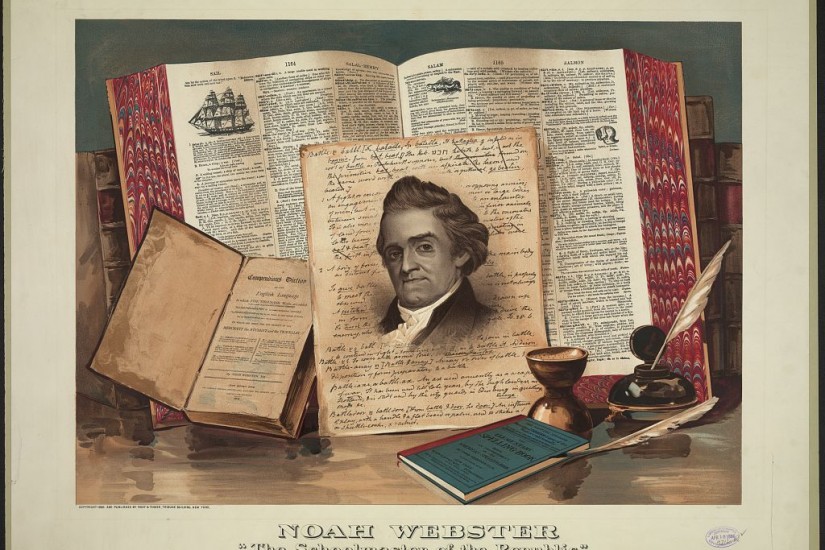Here’s some trivia for you logophiles out there: Noah Webster, author of An American Dictionary of the English Language (1828), invented the word “immigration.” That is, he took an existing word—in fact all the variations of to migrate, including commigrate, transmigrate, emigrate, and remigrate—and subtly but profoundly transformed them. He did this based on his long study of word origins and perhaps his own historical experience as an ardent American nationalist. In so doing, he created “definitions that had never before appeared in a dictionary of the English language,” writes scholar Neil Larry Shumsky.
What Webster did was make “space, time, and purpose fundamental characteristics of migration.” Shumsky tracks the changes from Webster’s lesser-known dictionary of 1806, A Compendious Dictionary of the English Language, which largely followed the definitions in Samuel Johnson’s 1755 Dictionary of the English Language.
Johnson defined migration as “an act of changing place” but did not define migrate or immigrate. Webster did. This is Webster’s 1806 definition of immigrate: “to remove into a country.” It’s similar to his emigrate: “to remove from place to place.” Here’s Webster’s more elaborate, 1928 definition of immigrate: “To remove into a country for the purpose of permanent residence.”
